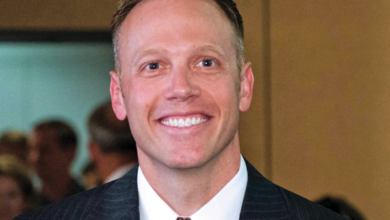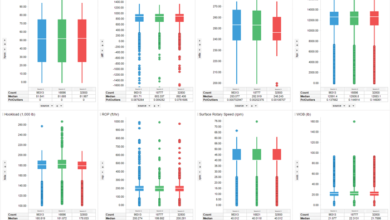Perspectives: Stacey Earley, Transocean: Flexibility, prioritization of risks helping contractors to keep offshore drilling economically viable
By Linda Hsieh, Managing Editor

From an early age, Stacey Earley loved math and figuring out the mechanics of how things were built. It was a natural affinity. “My mother used to say that while other kids were playing on the playground, I was underneath the playground figuring out how it was constructed,” recalled Ms Earley, now Director of Marketing Contracts and Proposals at Transocean. “That curiosity really carried out throughout my youth and continues today in my current role seeking creative ways to address contract mechanics.”
After high school, Ms Earley initially pursued civil engineering at the Massachusetts Institute of Technology – it seemed like an obvious choice for a budding engineer. But this was the early 1980s, and petroleum engineering was hot. Ms Earley soon decided to transfer to Texas A&M University and worked summer jobs on drilling rigs in West Texas and New Mexico, where she tried everything from logging wells to running casing to doing drill stem tests during those early years. One summer, she even worked as a roustabout for Pennzoil.
“We were the first wave of women that Pennzoil put on offshore platforms,” she said. “It was a challenge, but anybody who got to know me … realized I was there to work. I was there to do this fun, engineering, mechanical job. And the best part is a rig is like the biggest tinker toy. It had so many mechanical components.”
After graduating, Ms Earley continued working offshore for Pennzoil, initially as a night apprentice companyman and later as companyman on the Glomar Main Pass IV jackup. “I loved it,” said Ms Earley, now a mother of two who recently celebrated her 30th wedding anniversary to an offshore helicopter pilot. “I would definitely recommend getting out and working in the field. Make sure to build your knowledge of the fundamentals of your industry. It will pay off for the rest of your career.”
By the late 1980s, however, the oil industry was really struggling, and Ms Earley decided to focus on the mechanics of the business by earning her MBA. Afterward, she joined Exxon’s chemicals business for five years before deciding upstream was truly her calling. “Upstream is more about why I got into the oil industry. It’s pioneering. It’s going out where nobody’s been before.”
In 1998, she took a drilling contract engineering position with Exxon that allowed her to travel the world to oversee rig contracting activities. She recalls thinking she had achieved a certain level of expertise, only to realize it was the tip of the iceberg when she joined Transocean in 2006. “When I came to the contractor side, I had to know 50 different contracts and forms before we could even negotiate,” she said.
One of Ms Earley’s first projects at Transocean was streamlining the company’s myriad of contracting principles resulting from the company’s merger history. “We worked as a team to boil those down to a priority list that was more customer-friendly,” she said. “They still yield the appropriate risk management and protections, yet we want to be creative to help our customers drill because the more cost effective we can make it for them, the more jobs they are going to be putting out on the table.”
She also became involved with the IADC Contracts Committee, which Ms Earley currently chairs. The group develops and upholds basic principles of contracting between contractors and operators through four model contracts. The model land contract was updated in late 2013, and the committee is now updating the offshore model. “Our objective in updating these model contracts is not to reflect any particular constituent view but to represent the standards and norms of the industry as part of a holistic, long-term view,” she said.
The committee also works on amicus briefs and holds the bi-annual IADC Contracts and Risk Management Conference. “We also just took ownership of the IADC equipment list,” Ms Earley said. The committee is seeking to update the SFEL, which was created as a model for detailing drilling equipment for MODUs to accompany contractor bids.
Focus on Efficiencies
Looking to the future of the industry, Ms Earley said contractors must continue to seek efficiency improvements to keep offshore drilling economically viable. This doesn’t just refer to efficiencies in operations but also in the contracting process. “We have to prioritize risks and find places where we can be flexible versus places where we can’t,” she explained. At Transocean, this work has resulted in the “prioritize and minimize” method of contract reviews. “It’s a customer-focused tool that allows creativity within appropriate parameters. Creativity is not something people usually associate with contracting, but allowing for creativity has improved our effectiveness and efficiency.”
Efforts like this are making it possible for operators to drill at sub-$50 oil prices, Ms Earley said. “As an industry, we are seeing a bit of optimism right now, and we are seeing that because contractors have stood up and delivered some significant cost efficiencies that allow operators to go out and start prospecting again.”
And prospecting is what it is all about, said Ms Earley, who recognizes the mechanics of success as focusing on your work, turning challenges into opportunities and enjoying what you do: “You have got to persist, learn everything you can and be the best you can at whatever you are doing.” DC





